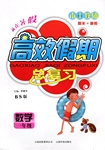题目内容
Researchers found that walking around with a forced smile and fake (假的) happiness simply leads to people feeling unhappier. So, putting a brave face on your sadness could be harmful. The research also found that women suffered more than men when pretending to be happy.
Dr. Brent Scott, who led the study, said employers should take note because forcing workers to smile when dealing with the public can result in bad outcomes. He said, “Smiling for the sake of smiling can lead to emotional tiredness, and that’s bad for the organization.” He also said the research showed customer-service workers who had “fake smiles” throughout the day fell into a bad mood and didn’t want to work, so their productivity dropped.
The study is one of the first of its kind to examine emotional expressions over a period of time and compare the different effects on men and women. Dr. Scott’s team examined the effects of “surface acting”, or fake smiling, compared to “deep acting”, or making people smile by thinking of peasant memories.
Dr. Scott said, “Women were harmed more by surface acting, meaning their moods worsened even more than men’s. However, they were helped more by deep acting, which means their moods improved more by thinking of pleasant memories. ”
According to Dr. Scott, women tend to suffer more when pretending to be happy because they are expected to be more emotionally expressive than men. Therefore, forcing a smile while feeling down is more likely to go against their normal behavior and cause more harmful feelings.
Although deep acting can improve moods a little in the short term, Dr. Scott says, it’s not a long-term solution to feeling unhappy. “There have been some suggestions that if you do this over a long period you start to feel unreal. You’re trying to develop positive emotions, but at the end of the day you may not feel like yourself any more.”
小题1:According to the passage, Dr. Scott’s study ______.
小题2:Women suffer more from fake happiness mainly because ______.
小题3:It is implied in the passage that deep acting _____.
小题4:What is the best title for the passage?
Dr. Brent Scott, who led the study, said employers should take note because forcing workers to smile when dealing with the public can result in bad outcomes. He said, “Smiling for the sake of smiling can lead to emotional tiredness, and that’s bad for the organization.” He also said the research showed customer-service workers who had “fake smiles” throughout the day fell into a bad mood and didn’t want to work, so their productivity dropped.
The study is one of the first of its kind to examine emotional expressions over a period of time and compare the different effects on men and women. Dr. Scott’s team examined the effects of “surface acting”, or fake smiling, compared to “deep acting”, or making people smile by thinking of peasant memories.
Dr. Scott said, “Women were harmed more by surface acting, meaning their moods worsened even more than men’s. However, they were helped more by deep acting, which means their moods improved more by thinking of pleasant memories. ”
According to Dr. Scott, women tend to suffer more when pretending to be happy because they are expected to be more emotionally expressive than men. Therefore, forcing a smile while feeling down is more likely to go against their normal behavior and cause more harmful feelings.
Although deep acting can improve moods a little in the short term, Dr. Scott says, it’s not a long-term solution to feeling unhappy. “There have been some suggestions that if you do this over a long period you start to feel unreal. You’re trying to develop positive emotions, but at the end of the day you may not feel like yourself any more.”
小题1:According to the passage, Dr. Scott’s study ______.
| A.is supported by some big employers in the USA |
| B.is meaningful as there haven’t been many similar ones |
| C.examined more women than men for a long time |
| D.aimed to make the employees more productive |
| A.they usually turn up shy in public places |
| B.they should be more emotionally expressive |
| C.they are often treated in a terrible way |
| D.they like thinking of pleasant memories |
| A.doesn’t have any effect on men |
| B.cannot improve our moods in any case |
| C.harms our feelings in the long run |
| D.pleases people by feeling like another person |
| A.Fake smiling makes people unhappy. |
| B.Women shouldn’t be forced to smile. |
| C.An important suggestion for workers. |
| D.Why people don’t want to work. |
小题1:D
小题2:A
小题3:C
小题4:C
文章讲述的是一项研究表明,不是真心的笑会影响工人的工作效率,因此给工人提供了一些建议。
小题1:推理判断题,根据第二段的 throughout the day fell into a bad mood and didn’t want to work, so their productivity dropped可知,该研究的最终目的是提高工人的生产效率。
小题2:推理判断题,根据倒数第二段的 women tend to suffer more when pretending to be happy because they are expected to be more emotionally expressive than men可知
小题3:推理判断题,根据文章最后一段可知,deep acting短期是好的,但是从长期角度看还是有害的。
小题4:主旨大意题,文章讲述的是提高工人工作效率的一些心情方面的建议。
小题1:推理判断题,根据第二段的 throughout the day fell into a bad mood and didn’t want to work, so their productivity dropped可知,该研究的最终目的是提高工人的生产效率。
小题2:推理判断题,根据倒数第二段的 women tend to suffer more when pretending to be happy because they are expected to be more emotionally expressive than men可知
小题3:推理判断题,根据文章最后一段可知,deep acting短期是好的,但是从长期角度看还是有害的。
小题4:主旨大意题,文章讲述的是提高工人工作效率的一些心情方面的建议。

练习册系列答案
 本土教辅赢在暑假高效假期总复习云南科技出版社系列答案
本土教辅赢在暑假高效假期总复习云南科技出版社系列答案 暑假作业北京艺术与科学电子出版社系列答案
暑假作业北京艺术与科学电子出版社系列答案 第三学期赢在暑假系列答案
第三学期赢在暑假系列答案
相关题目